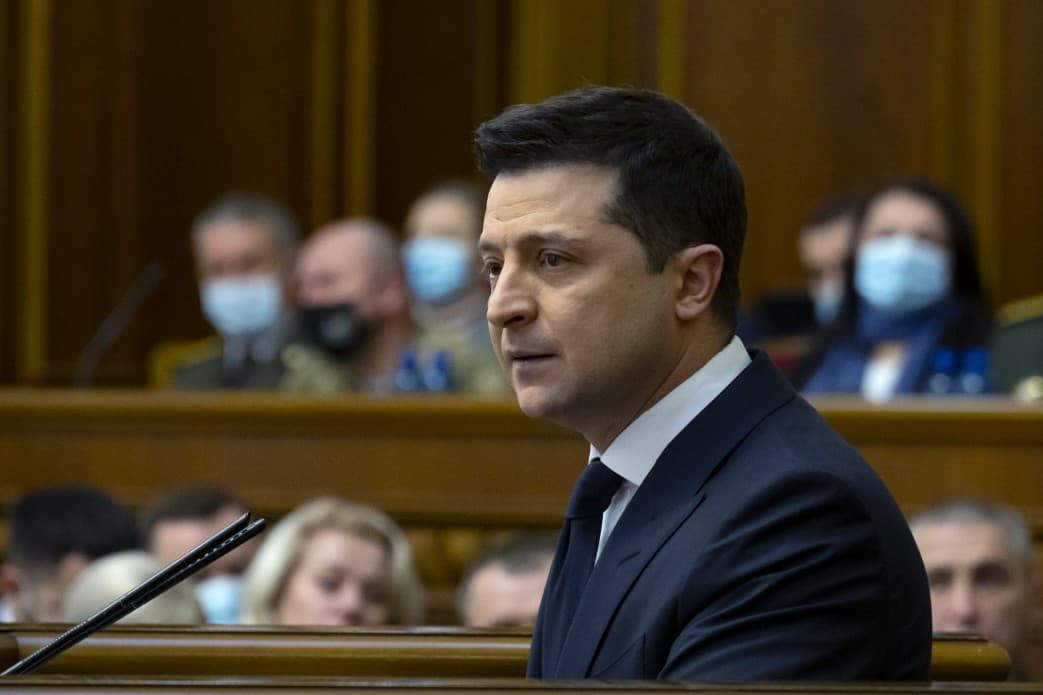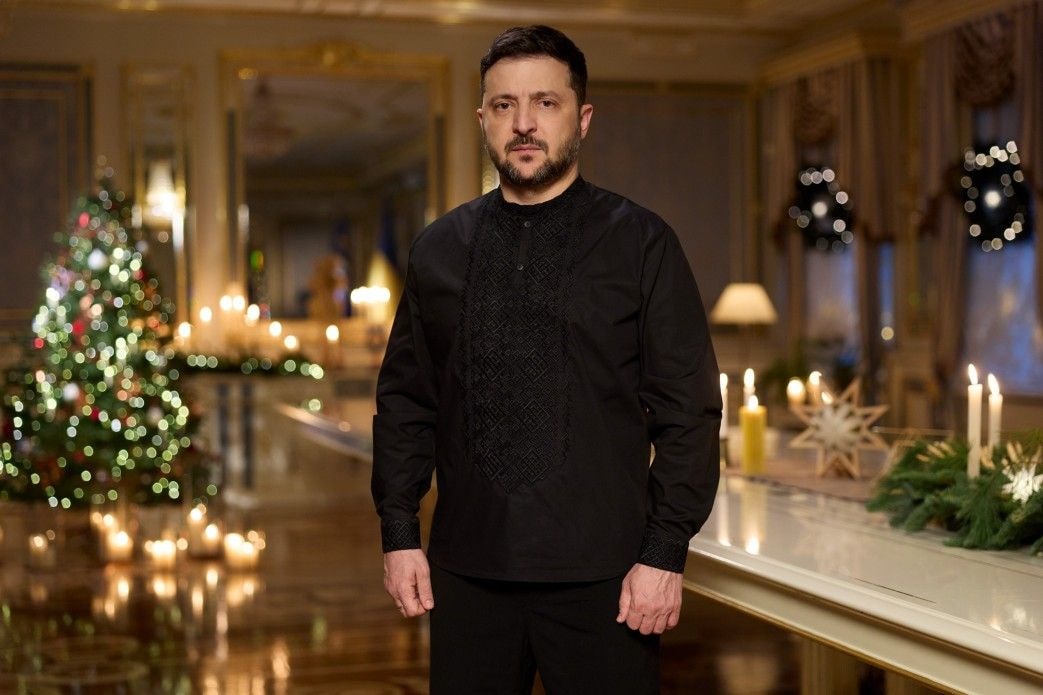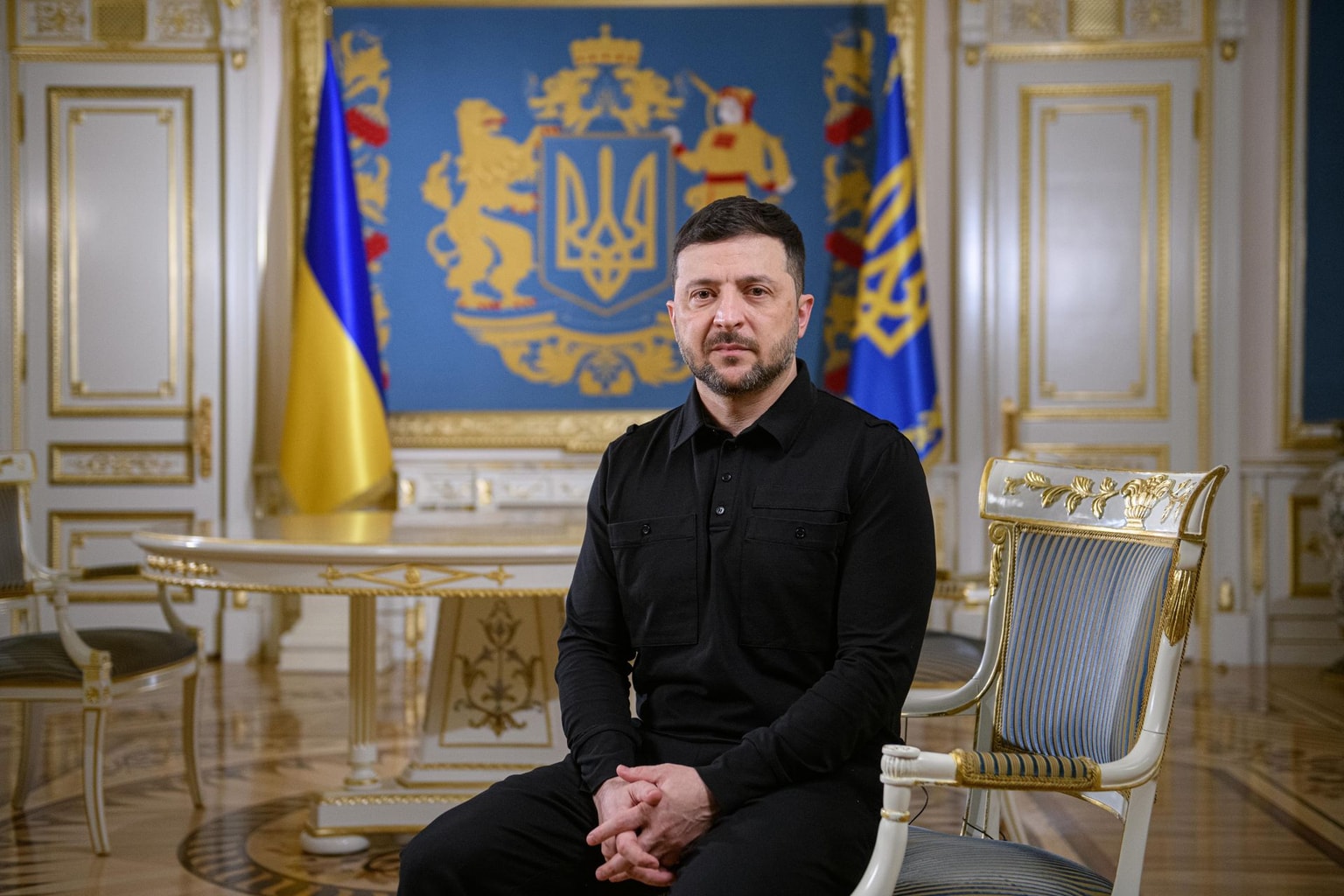On the morning of Dec. 1, President Volodymyr Zelensky gave his annual speech to Parliament. Here are the key points from his address:
Dialogue with Russia
Zelensky’s headline-grabbing statement was that Ukraine “cannot end the war (in the Donbas) without direct dialogue with Russia.”
The president said that Ukraine’s international partners have “all recognized” this, and are ready to support the country’s negotiations with Russia.
Up until now, Ukraine’s negotiations with Russia have been including third parties, such as France and Germany (Normandy Format) or OSCE (Trilateral Contact Group).
Iryna Gerashchenko, co-head of the 27-member European Solidarity faction, said that talks with Moscow are an “absolute capitulation,” while the pro-Kremlin Opposition Platform - For Life faction welcomed the idea.
Zelensky’s call for talks comes a day before a crucial meeting between U.S. Secretary of State Anthony Blinken and his Russian counterpart Sergey Lavrov in Stockholm. Russia’s recent troop buildup on Ukraine’s borders will be among the key topics discussed.
Russia currently has at least 93,000 troops stationed near the Ukrainian border. Western intelligence services have warned that a large-scale invasion may happen in late January or early February.
On Nov. 27, NATO’s Secretary General Jens Stoltenberg told German newspaper Die Welt that Russia’s military stance was “not a bluff.”
Dual citizenship bill
Zelensky announced that he will introduce a bill that would allow Ukrainians to hold dual citizenship.
“I know how important the question of dual citizenship is to Ukrainians living in the U.S., Canada, and the EU,” Zelensky told lawmakers.
Currently Ukraine doesn't recognize any other citizenships held by Ukrainian citizens.
According to the Ukrainian World Congress, a diaspora organization, there are approximately 20 million ethnic Ukrainians living outside the country.
Resource rents to pay for education
Zelensky also announced the introduction of a bill that would create an “economic passport” for every Ukrainian child.
These “passports” would be equivalent to government bank accounts and would allow Ukrainian children to yearly receive 1% of proceeds from the use of land and extraction of natural resources. The account holders would then be able to spend these funds on their higher education. Only Ukrainians born after Jan. 1, 2020 would be eligible.
The bill follows the passage of the so-called “anti-Akhmetov law” by parliament on Nov. 30. It changes how companies pay rent for mining iron ore. Instead of rent being based on the cost of production, it would be now tied to iron ore prices on international markets. As a result, iron ore producers will pay more money to the budget. Metinvest, owned by oligarch Rinat Akhmetov is Ukraine’s largest iron ore producer.
However, international iron ore prices have been in a steep crash since July, dropping from $227 to $100 per ton, due to decreasing demand from China, meaning a lesser rent fee for iron ore producers than initially expected.
CORRECTION: An earlier version of this story erroneously said that Ukraine’s Constitution “forbids Ukrainian citizens to hold any other passport.” In fact, Ukraine doesn’t recognize other citizenships of its citizens, but doesn’t “forbid” them. We thank our readers who pointed out this legal distinction.











